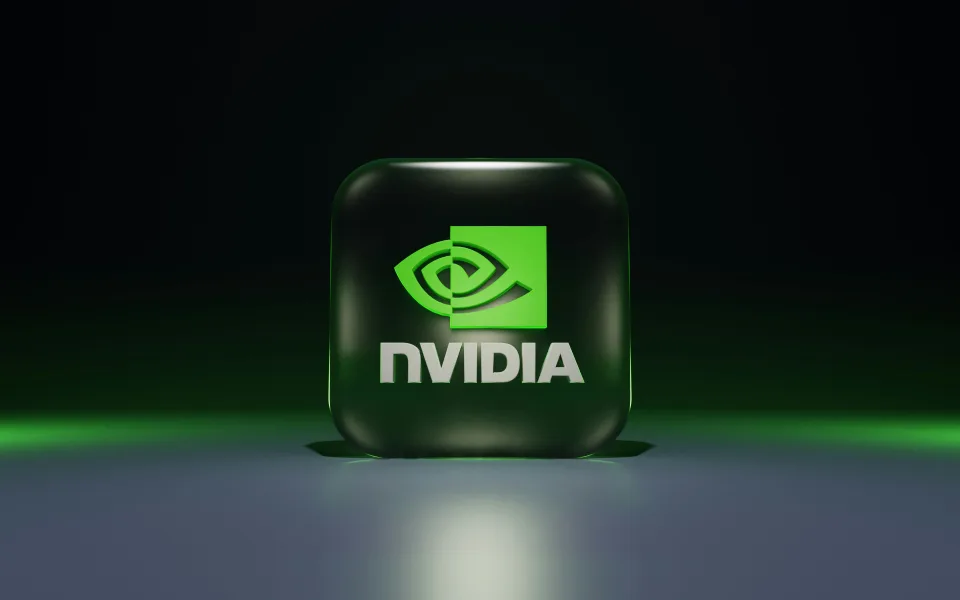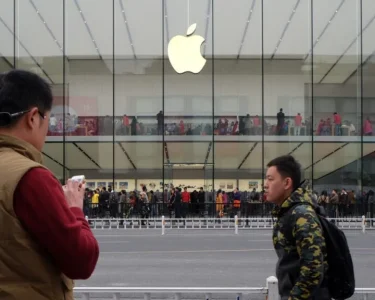The U.S. DOJ Subpoenas NVIDIA, a key player in the artificial intelligence (AI) industry, as part of an antitrust investigation. This move signifies escalating concerns surrounding NVIDIA’s dominant position in the AI processor market, which has raised alarm bells about potential anti-competitive practices.
With artificial intelligence continuing to expand rapidly, companies like NVIDIA have played a crucial role in providing the hardware and software that drive AI innovations. However, this sudden DOJ probe highlights the increasing scrutiny of the tech industry’s consolidation, particularly in markets that impact the development of critical technologies like AI.

Why NVIDIA Is Under the DOJ’s Spotlight
NVIDIA, headquartered in Santa Clara, California, has established itself as the global leader in manufacturing high-performance graphics processing units (GPUs). These GPUs are indispensable for tasks that require massive amounts of computational power, such as deep learning, machine learning, and AI applications. Over the years, NVIDIA’s GPUs have become the gold standard for AI processors, giving the company a dominant share in the market.
But this dominance has attracted the attention of regulators. The DOJ’s antitrust probe is reportedly investigating whether NVIDIA’s market position is stifling competition and innovation in the AI processor space. With NVIDIA being a crucial supplier to many AI-focused businesses, the potential for anti-competitive practices could have widespread implications.
The Broader Context of Antitrust Concerns in Tech
The investigation into NVIDIA is part of a larger trend of antitrust scrutiny that has been growing in the tech industry. The DOJ, along with the Federal Trade Commission (FTC), has been ramping up its efforts to curb monopolistic behavior, targeting companies that hold a disproportionate share of the market. With tech giants like Google, Meta, and Amazon facing similar investigations, it’s clear that the U.S. government is intent on preventing any single entity from dominating critical markets, especially those as transformative as AI.
AI is becoming an integral part of various industries, ranging from healthcare and finance to autonomous driving and military applications. The processors and GPUs provided by companies like NVIDIA are essential to the development of these technologies. Given this, any monopolistic control over AI processors could pose risks to innovation and competition.
What the Subpoena Could Mean for NVIDIA and the AI Industry
The DOJ’s subpoena seeks to gather documents and information related to NVIDIA’s business practices, partnerships, and dealings in the AI processor market. While the company has yet to release an official statement, the antitrust probe could have far-reaching consequences for both NVIDIA and the broader AI sector.
If the DOJ finds evidence that NVIDIA has engaged in anti-competitive practices, it could result in legal actions or sanctions that may reshape the market dynamics. Potential outcomes could include fines, regulatory mandates to alter business practices, or even the breakup of certain operations if deemed necessary.
This investigation also places pressure on other companies in the AI space. Firms that rely heavily on NVIDIA’s GPUs for their AI operations may be forced to seek alternatives if the market is significantly disrupted by the DOJ’s actions. In turn, this could open doors for competitors like AMD or Intel, who have been trying to gain a foothold in the AI processor market.
NVIDIA’s Influence on AI and the Importance of Competition
NVIDIA’s position as the leader in AI hardware is well-documented. Its GPUs power many of the world’s most advanced AI models, from natural language processing systems like ChatGPT to autonomous vehicles. This reliance on a single company for such critical components could limit competition and innovation, which is the core concern driving the DOJ’s investigation.
The need for competition in the AI processor market is more crucial than ever. As AI technologies become more integrated into daily life, ensuring that no single company can monopolize their development is essential for a healthy and competitive ecosystem. A diverse and competitive market fosters innovation and helps to bring down costs, making AI technologies more accessible to businesses and consumers alike.
What Comes Next in the Antitrust Investigation
The DOJ’s investigation is still in its early stages, but it could take years before any conclusions or legal actions are taken. For NVIDIA, this subpoena may only be the beginning of a long and costly legal battle. However, the company has weathered regulatory storms before, such as when its planned acquisition of ARM was called off due to antitrust concerns.
Industry analysts are closely watching how this investigation unfolds, as it could set a precedent for how regulators approach antitrust issues in the tech industry moving forward. If NVIDIA is found to have violated antitrust laws, it could change the landscape of AI development, with more competition entering the market and driving innovation in new directions.
The Implications for Consumers and Businesses
For consumers and businesses, this probe may signal a shift toward greater regulation in the AI industry. While NVIDIA’s advancements have been beneficial, ensuring a fair and competitive market could lead to even more breakthroughs in AI. A more balanced marketplace might also result in lower prices for AI hardware and services, benefiting companies that want to incorporate AI into their operations but have been deterred by the high costs.
On the other hand, if NVIDIA’s practices are found to be compliant with antitrust laws, it will reinforce the company’s position as the dominant force in AI hardware. Either way, the outcome of this investigation will likely have a lasting impact on how AI technology evolves and who controls its future development.
Conclusion
The DOJ’s subpoena of NVIDIA marks a pivotal moment in the regulation of the AI industry. As the investigation unfolds, both NVIDIA and the broader tech landscape are under heightened scrutiny. Whether the probe results in regulatory changes or not, one thing is clear: the stakes for the future of AI and technological innovation are higher than ever.
For the latest updates on this case and other tech industry news, visit Digital Digest for more in-depth analysis and coverage.




